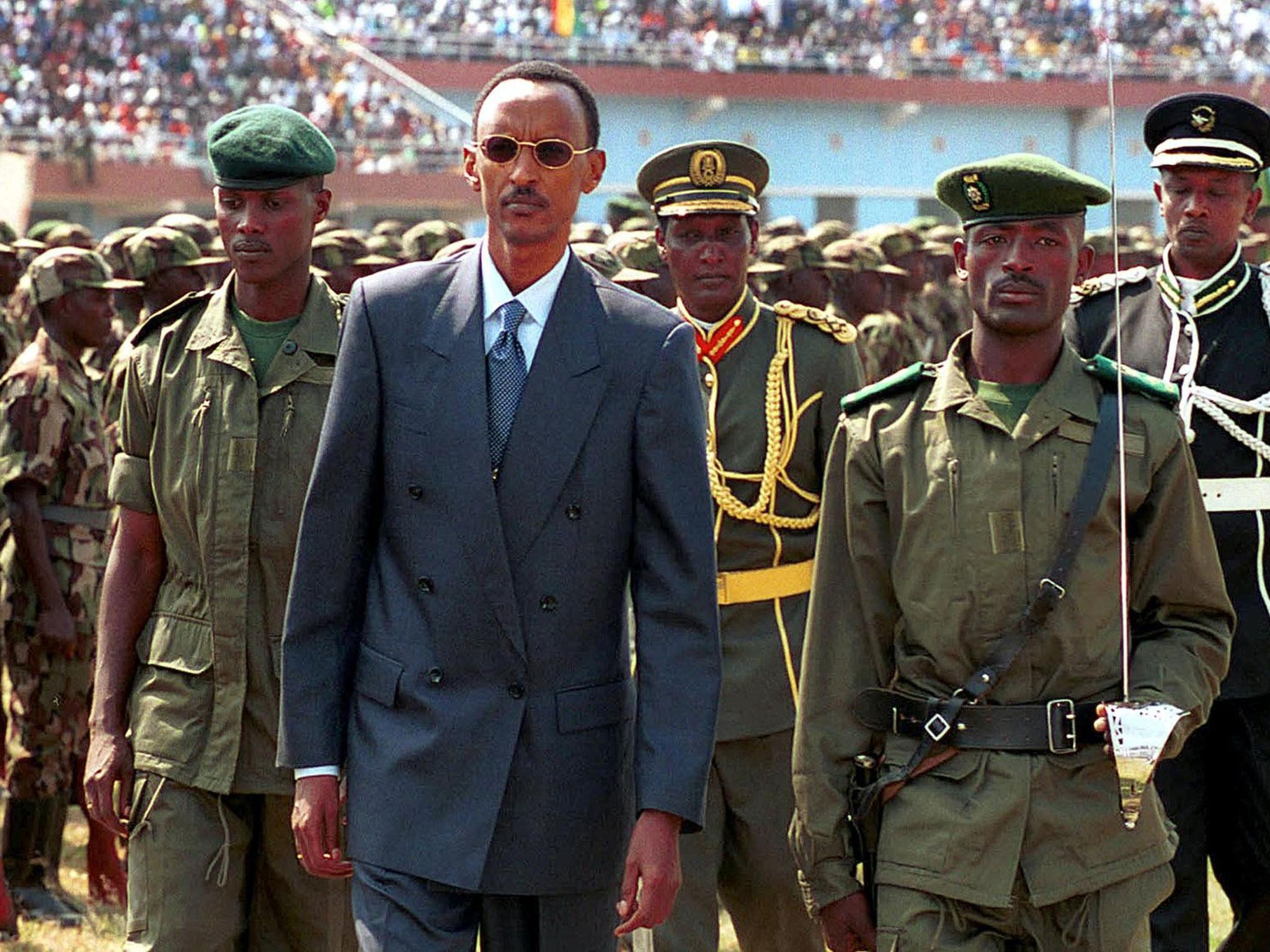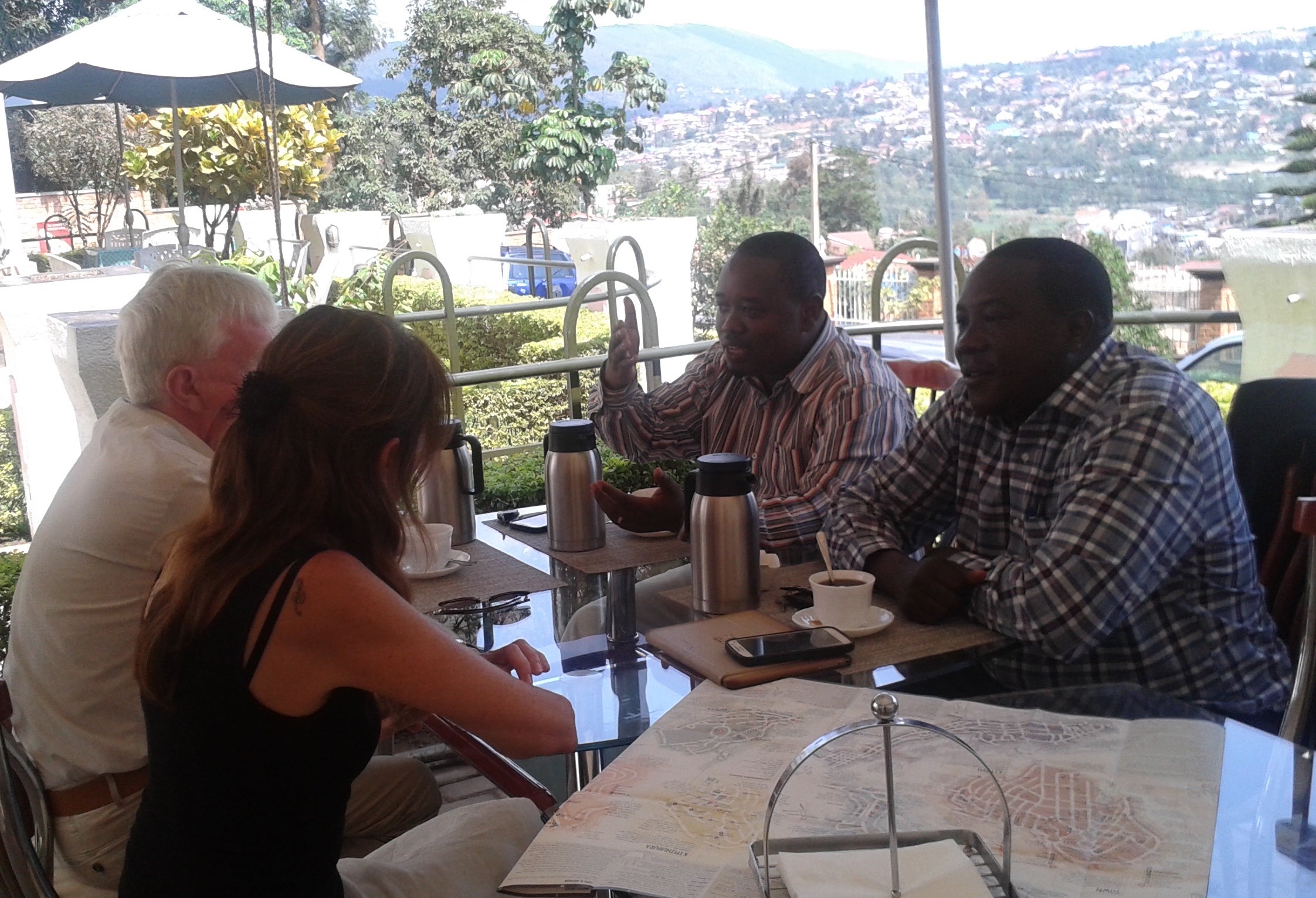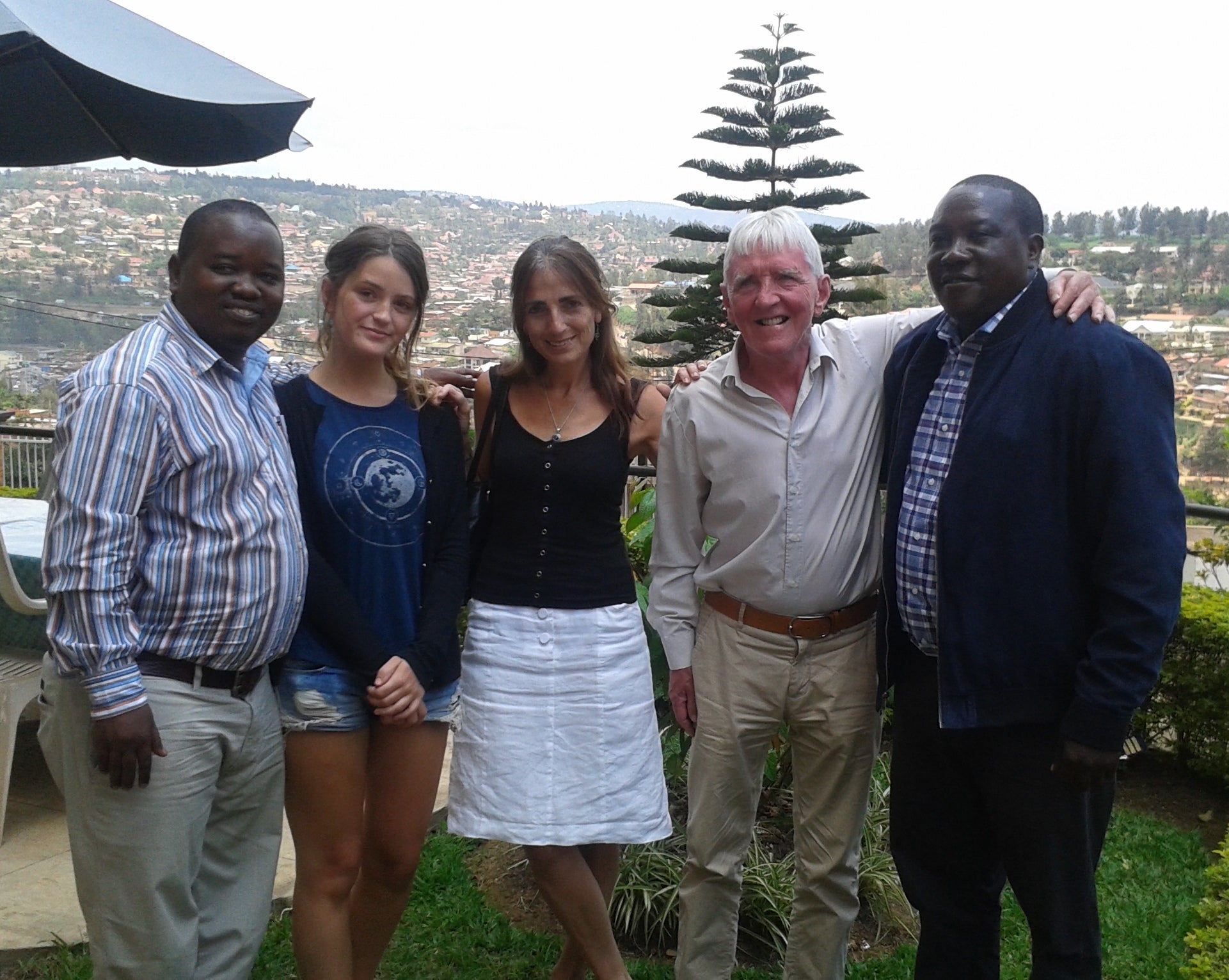Tweeting a ‘dictator’: How a British tourist’s holiday changed after she called out an African president
Exclusive: Wendy Murphy, 56, challenged Rwanda’s Paul Kagame to defend his record on social media. She never expected a response

Your support helps us to tell the story
From reproductive rights to climate change to Big Tech, The Independent is on the ground when the story is developing. Whether it's investigating the financials of Elon Musk's pro-Trump PAC or producing our latest documentary, 'The A Word', which shines a light on the American women fighting for reproductive rights, we know how important it is to parse out the facts from the messaging.
At such a critical moment in US history, we need reporters on the ground. Your donation allows us to keep sending journalists to speak to both sides of the story.
The Independent is trusted by Americans across the entire political spectrum. And unlike many other quality news outlets, we choose not to lock Americans out of our reporting and analysis with paywalls. We believe quality journalism should be available to everyone, paid for by those who can afford it.
Your support makes all the difference.There is nothing in the UK Foreign Office’s advice for travelling to Rwanda that warns against contacting the country’s authoritarian leader to ask if he is a dictator.
In a small African state where critics of the government have reportedly been made to disappear, the need for a little caution might seem self-evident. Yet one British tourist and her family decided to throw caution to the wind, and found themselves at the centre of a Twitter storm, visited by two government officials, and firmly on the radar of the President himself.
President Paul Kagame entered Rwanda at the head of an army to end its genocide 22 years ago, and has been the dominant force in its politics ever since. His critics say he has stifled political plurality and personal freedoms, shut down opposition media and stage-managed constitutional reforms to ensure he remains in power until, potentially, the year 2034.
But Mr Kagame has also won praise from the likes of Ban Ki-moon, Bill Clinton and Tony Blair, and under his governance Rwanda has become one of the greatest success stories of socio-economic development on the continent.
It’s a dichotomy that most of the country’s tourists ignore, perhaps including only a cursory visit to a genocide memorial site before heading out to see the gorillas in the northern Virunga Mountains.
Yet the great apes held no interest for 56-year-old Wendy Murphy and her family, who visited at the end of last month after daughter Ellie, 18, studied the genocide at school.
Speaking to The Independent, Ms Murphy described how they became hooked on the story of Rwanda, from its colonisation by Belgium to the events of 1994, in which around 800,000 mainly ethnic Tutsis were killed in just 100 days, to its extraordinary development afterwards.
“At some point over the summer we just thought, wouldn’t be it wonderful to actually go there and see the country for ourselves?” she said.
They had only spent a couple of days in the capital Kigali, with its pristinely clean streets, gleaming new international conference centre and idyllic setting among green hills, when Ms Murphy decided – “half-jokingly” – to tweet President Kagame’s personal account with a question, inspired by all her reading.
“We are very impressed with your country,” she wrote. “What do you say to those who think your methods are dictatorial?”
For some hours, there was no response, and the family thought nothing more of the matter. But then, the President replied.
“We were absolutely flabbergasted, and within minutes I started getting tweets from other Rwandans. It is still going on now,” Ms Murphy said.
Almost all of the follow-up tweets were positive about Rwanda’s development – to the point of being “almost defensive”, she said. And when an MP with the ruling RPF party started asking for a meeting to discuss the tweet, Ms Murphy said she and her husband Tim, 66, started feeling “a slight trepidation – knowing some of the criticism of Kagame”.
The family met with two officials, including the MP JMV Gatabazi, for more than two hours, and after a slightly interrogatory start the meeting became “a very jolly, very positive visit”, in which Ms Murphy and her family heard about the development projects going on under President Kagame – “much of which we knew already”.
With the officials’ blessing – and the assurance that the President was fully aware of the family and their visit – the Murphys went ahead with their visits to memorial sites around the country and did as President Kagame had asked.
A good strong hand
“During the 10 days we spoke to Rwandans from all walks of life, and they were all eager to talk to us," Ms Murphy said. "Some would mention how the country is going and what the President is doing with clear pride, and all the people we met in different places around the country were just looking so well.
“A critic might say they are scared, they are brainwashed, they wouldn’t say anything else, but we didn’t see that. We are outsiders, and obviously there might be some areas we are not aware of that are a bit suspect. But our overall impression was that this is just a truly remarkable success story of the 21st century.”
So what of President Kagame himself? After everything, Ms Murphy said she could not shake the idea that there was “very much some sort of dictatorial element there”.
She cited the capital’s exceptional cleanliness as an example. Unlike many major African cities, it is free from the blight of plastic bags accumulating in every gutter: that’s because Kagame outlawed plastic bags entirely in 2008, to the point where they are confiscated from tourists entering the country.
“It is very clean,” Ms Murphy said. “Kagame is apparently really particular about cleanliness – he even passed a law saying peasants are not allowed to wear dirty clothes or share straws.


“There are odd quirks, but in the sense that he is a very strong man, we are very much admirers of his.
“When you look at what Kagame was up against, 22 years is such a short space of time. There are certain extreme situations where you need a strong hand, preferably a good strong hand, and that’s what Paul Kagame is. He might not make things perfect, but has got the country together.”
Persuading the international community that Rwanda is a stable, safe country to visit and do business in has perhaps been Mr Kagame’s greatest achievement. But tourism numbers are still behind those of its east African neighbours, and while rising look set to fall short of a target of two million visitors a year by 2017.
It seems that in a bid to make that goal, the government – even at the highest level – is putting its faith in a personal approach.
Is Kagame a dictator?
President Kagame is the first to admit that his methods are not in keeping with those of a developed, Western democracy, but he rejects the suggestion that he is at the head of a regime “straight from George Orwell’s Nineteen Eighty-Four”.
“You cannot build democracy on sand,” he said in a 2012 interview with the news magazine Jeune Afrique, suggesting Rwanda was not yet ready for democracy in “the Western model” after the trauma of the past few decades. But at the same time, he added: “I am not a doctor issuing mandatory orders to the people on what to do or not do by holding them by the throat.”
That justification for his authoritarian leadership style – that it is overwhelmingly popular – is the same reasoning he uses to explain why he has accepted a constitutional amendment that will allow him to seek a third term in office from 2017.
A referendum on the change saw 98 per cent of Rwandans vote in favour, according to the government. But because it applies only to Kagame, it has been criticised by the EU as undermining democratic principles, and last year Barack Obama called it “a first step down a perilous path”.
The Independent tried to contact President Kagame for an interview but, unlike with Ms Murphy, he has yet to respond to a tweet.
But speaking to this newspaper, JMV Gatabazi – the MP who met with Ms Murphy – said Mr Kagame had “never been a dictator”.
“Kagame's leadership is very inclusive and based on the needs of the citizens,” he said, adding that “security and fighting against genocide ideology [are] key”.
“He is tight on discipline and he is consistent when it comes to the fight against corruption and malpractice,” he added.
In its World Report 2016, Human Rights Watch described opportunities for genuine political opposition in the country as “very limited”, and found that “tight restrictions on freedom of speech and political space remained in place”. The murders of two prominent journalists who had been critical of the government, Jean-Léonard Rugambage and Charles Ingabire, made headlines around the world in 2010 and 2011 respectively.
Amnesty International has previously called on the Rwandan government to investigate credible reports of the unlawful detention and torture of “scores” of civilians in military prisons.
And in its most recent country report for Rwanda, the US State Department said: “The most important human rights problems in the country were government harassment, arrest, and abuse of political opponents, human rights advocates, and individuals perceived to pose a threat to government control and social order; security forces’ disregard for the rule of law; and restrictions on civil liberties.
“Due to restrictions on the registration and operation of opposition parties, citizens did not have the ability to change their government through free and fair elections.”
Asked about the specific international criticisms of the Kagame regime, Mr Gatabazi said: “It is up to Rwandans to appreciate [the President] based on the progress and socio-economic transformation we have all benefited [from].
“The rest of the world, with good will, should admire Kagame's achievements,” he said, adding that they “talk [for] themselves”.
As for Ms Murphy and her family, they are now safely back in Poland, where she is the co-founder of two British International Schools.
Mr Gatabazi described their meeting as a “very positive” and “interesting discussion”. He has invited them to return to Rwanda again someday and, according to Ms Murphy, intimated that they may even be able to meet the President in person. Just as long as they schedule their visit before 2034.
Join our commenting forum
Join thought-provoking conversations, follow other Independent readers and see their replies
Comments